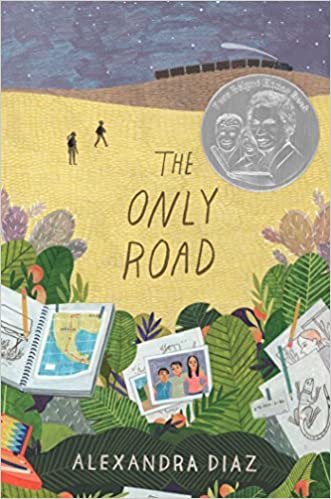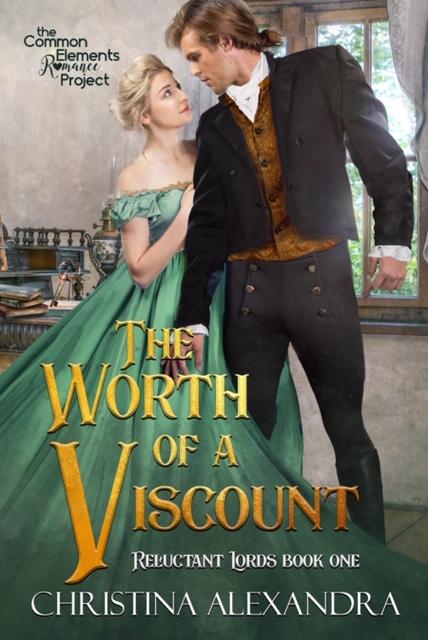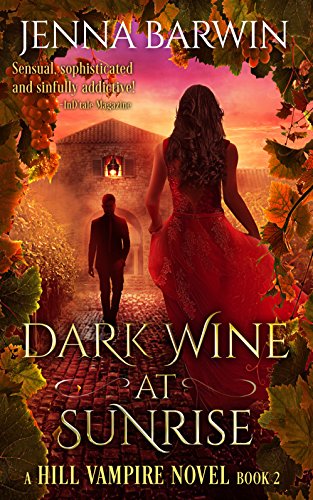WHISKEY LOVE—A REVIEW BY VERONICA JORGE
September 22, 2022 by Veronica Jorge in category Book Reviews by Veronica Jorge, Write From the Heart by Veronica Jorge tagged as book review, Joy Allyson, new release, romance, Whiskey Love
Who doesn’t love a good romance? Especially when you start wishing the story was your own.
It’s the 1800s, in Tennessee. Folks don’t take kindly to outsiders, especially highfalutin northeasterners. Men reject women meddling in business affairs, particularly the whiskey business. And the temperance movement is in full swing, trying to do away with intoxicating spirits altogether.
Meet Chloe Tanner, a high-born lady from Boston, who has inherited her family’s famous distillery, which she is determined to keep and run against all the odds.
Bold and brash, Chloe can hold her own against societal mores and conventions and inept managers. But she’s thrown off balance by her attraction to the very handsome Penland Kittrell, her main business rival.
When a suspicious fire burns the cornfield that supplies Chloe’s business, the bottling company claims to be out of stock, her office is blown up, and someone takes a shot at her, Chloe braces herself for the fight of her life.
Is it the temperance movement? A disgruntled worker she fired? Men who don’t want to work for a woman? Or her rival, Penland Kittrell, the man she’s fallen in love with, trying to shut her down or force her to sell out?
As Chloe discovers. “Sometimes you can’t help who your heart falls for, you just have to deal with it. Somehow.”
But with so many threats against her business and now her life, how will she deal with it? And can she trust the love of her life, Penland Kittrell?
If you like danger, mystery, romance, and strong heroines, Whiskey Love by Joy Allyson is the book for you.
You might also find yourself reaching for a bit of Tennessee history and whiskey.
Veronica Jorge
See you next time on October 22nd!
0 1 Read moreDistant Relations: A Finn O’Brien Crime Thriller Reviewed by Veronica Jorge
August 22, 2022 by Veronica Jorge in category Book Reviews by Veronica Jorge, Write From the Heart by Veronica Jorge tagged as A Finn O'Brien Thriller, book review, distant relations, Rebecca Forster, Reviewed by Veronica Jorge

It started out as just another day. Finn O’Brien waited at the airport to greet his uncle. What he saw was the plane exploding, bursting into flames, and taking his uncle and the other passengers with him.
Fans of the Finn O’Brien series know that nothing’s ever ordinary in the life of this detective. Forced to kill a fellow officer who had been trying to kill him, he had been vilified in the press and ostracized by his peers. Personally, it gnawed at him that he had never been able to solve his younger brother’s murder. And his wife’s divorce still tortured him. A man of purpose and faith, he had endured it all, and then some.
Finding the airline uncooperative as he tries to get answers, and stonewalled by the investigative agents gets Finn’s Irish up. His gut tells him that this explosion was no accident. What are they trying to cover up?
With no help or back-up from his department, it’s up to Finn and his faithful partner Cori to follow the money trail and challenge the powers in charge in order to discover the truth and hopefully prevent more deaths.
Mystery, murder, danger, suspense, and a hint of romance, Distant Relations has it all. Readers of Finn O’Brien will fall in love with him all over again.
Veronica Jorge
See you next time on September 22nd!
2 2 Read moreThe Eviction of Figures of Speech
July 22, 2022 by Veronica Jorge in category Write From the Heart by Veronica Jorge tagged as Craft, Figurative language, Figures of Speech, writing
The current trend in writing is to tread carefully when using figurative language because descriptions may be offensive, such as comparing people with foods. So, even though my complexion is cappuccino and my eyes are almond-shaped, I’m not allowed to say that; even about my own self. It’s considered feeding a stereotype. In the Caribbean, we often made jokes by claiming, “I’m not really brown, I just stayed in the sun too long.” Or, “My hair’s not really kinky, it’s the humidity.”
From time immemorial, (I’m not really saying that time is old. Experienced perhaps?), people have been all colors, shapes, and sizes. Writers, artists and photographers capture what they see. Okay, maybe some artists were punished if the sovereign didn’t like how they were depicted, but a photo doesn’t lie. Yeah, that’s really you. Though nowadays you can doctor it up in photoshop.
It would seem that one may no longer describe characters as ‘cute as a button,’ ‘cool as a cucumber,’ ‘mean as a junkyard dog,’ ‘thick as thieves’, or ‘slow as molasses.’
Although, I don’t think the scarecrow from the Wizard of Oz would be offended if I called him a stuffed shirt ‘cause he was. And Jacob Marley will forever remain ‘as dead as a doornail.’
When we order coffee, do we no longer ask for a ‘short’ or ‘tall’?
The characters writers create are fictional. Figurative Language: metaphors, similes and personification, show the reader how the character perceives themselves and/or how they are perceived by others. All of which help the reader to understand the conflicts and motivations in their lives that cause them to act as they do. Descriptive language is also the artistic palette that allows readers to see the characters.
Mirror, mirror on the wall. We are who we are. When did we become so sensitive and easily offended?
In our overzealousness to be politically and diversely correct, we risk creating flat, unrealistic and unbelievable characters that by page five are dead on arrival.
Sometimes I wonder who is this collective that wants to do away with metaphors, similes and personification? As in the Wizard of Oz, I would like to draw back the curtain to reveal the ‘all-powerful’ entity controlling the literary world.
I don’t care what anyone says, the truth is the truth. My grandfather was black as tar, my father thin as six o’clock, my best-friend cackled like a chicken, my aunt nattered like a monkey, my uncle snored like a chainsaw.
And the world really is round, no matter how flat ‘they’ think it is.
See you next time on August 22nd!
Veronica Jorge
8 2 Read moreFIVE BELLES TOO MANY: A Sarah Blair Mystery BY DEBRA H. GOLDSTEIN—REVIEWED BY VERONICA JORGE
June 22, 2022 by Veronica Jorge in category Book Reviews by Veronica Jorge, Write From the Heart by Veronica Jorge tagged as #Cozy #Mystery, book review, Debra H. Goldstein, new release, Sarah Blair MysteryShe’s done it again! In her new cozy mystery, Five Belles Too Many, Debra H. Goldstein once again shows her mastery at creating a tangle of secret lives and ambitious hearts where she hides the killer in plain sight within the story. And though we meticulously follow the clues she scatters for us, we’re always thrown for a loop because the killer is never who we think.
If you have been following these reviews, as I hope you have, and reading her previous books, you’ll be familiar with the twins, Emily the chef of Southwind restaurant in Wheaton, Alabama, and her sister Sarah, who works for a lawyer.
Trouble and murder seem to follow the twins in every project and venture and their joint ownership of the restaurant has found murder as the main course one too many times. Working in concert, they’ve always helped the police catch the culprit.
In Five Belles Too Many, Sarah takes center stage. The city of Wheaton hosts a Southern Belles reality show where five couples compete to win a perfect wedding and dream honeymoon. Excitement. Nerves on edge. Egos and tempers flaring. The tension ramps up when someone turns up dead. Sarah’s investigative instincts kick in as she attempts to identify the killer and prevent another death. The stakes are high because her mother is one of the show’s contestants and possibly the next victim.
Available July 2022, a perfect cozy mystery to add to your summer reading collection.
Remember to try the recipes at the end of the book.
Veronica Jorge
See you next time on July 22nd!
0 1 Read morePoetic Thoughts by Veronica Jorge
May 22, 2022 by Veronica Jorge in category Write From the Heart by Veronica Jorge tagged as Haiku, Highlights foundation, national poetry month, poetry, Veronica Jorge, world poetry day
March was World Poetry Day, and April was National Poetry month. During a recent webinar sponsored by the Highlights Foundation, the authors Margarita Engle and Padma Venkatraman expressed the following thoughts: Poetry is a safe place, a refuge for your emotions. Poetry is a form of music. Poetry is hopeful. I find that through poetry one can communicate something extremely personal in a safe way. You say it, but don’t really say it. Your words reveal a part of you. Your emotions come out like a song lyric. Here I share two of my haiku poems of feelings in my own heart.
Haiku
Memories
by Veronica Jorge
Sand, thousands of grains
They are like my memories
My heart filled with you.
Reflection
by Veronica Jorge
To teach is to learn
In my pupil I see me
My life example.
Thanks for reading.
See you next time on June 22nd!
~Veronica Jorge
2 3 Read moreAffiliate Links
A Slice of Orange is an affiliate with some of the booksellers listed on this website, including Barnes & Nobel, Books A Million, iBooks, Kobo, and Smashwords. This means A Slice of Orange may earn a small advertising fee from sales made through the links used on this website. There are reminders of these affiliate links on the pages for individual books.
Search A Slice of Orange
Find a Column
Archives
Featured Books
THEIR NIGHT TO REMEMBER
A handsome stranger…With an ulterior motive.
More info →THE WORTH OF A VISCOUNT
After four seasons without a single offer of marriage, Lady Maxine Pearson realizes perfection is decidedly overrated.
More info →DARK WINE AT SUNRISE
A seductive spy. An alpha vampire. A deadly conspiracy determined to kill them both...
More info →Newsletter
Contributing Authors
Search A Slice of Orange
Find a Column
Archives
Authors in the Bookstore
- A. E. Decker
- A. J. Scudiere
- A.J. Sidransky
- Abby Collette
- Alanna Lucus
- Albert Marrin
- Alice Duncan
- Alina K. Field
- Alison Green Myers
- Andi Lawrencovna
- Andrew C Raiford
- Angela Pryce
- Aviva Vaughn
- Barbara Ankrum
- Bethlehem Writers Group, LLC
- Carol L. Wright
- Celeste Barclay
- Christina Alexandra
- Christopher D. Ochs
- Claire Davon
- Claire Naden
- Courtnee Turner Hoyle
- Courtney Annicchiarico
- D. Lieber
- Daniel V. Meier Jr.
- Debra Dixon
- Debra H. Goldstein
- Debra Holland
- Dee Ann Palmer
- Denise M. Colby
- Diane Benefiel
- Diane Sismour
- Dianna Sinovic
- DT Krippene
- E.B. Dawson
- Emilie Dallaire
- Emily Brightwell
- Emily PW Murphy
- Fae Rowen
- Faith L. Justice
- Frances Amati
- Geralyn Corcillo
- Glynnis Campbell
- Greg Jolley
- H. O. Charles
- Jaclyn Roché
- Jacqueline Diamond
- Janet Lynn and Will Zeilinger
- Jaya Mehta
- Jeff Baird
- Jenna Barwin
- Jenne Kern
- Jennifer D. Bokal
- Jennifer Lyon
- Jerome W. McFadden
- Jill Piscitello
- Jina Bacarr
- Jo A. Hiestand
- Jodi Bogert
- Jolina Petersheim
- Jonathan Maberry
- Joy Allyson
- Judy Duarte
- Justin Murphy
- Justine Davis
- Kat Martin
- Kidd Wadsworth
- Kitty Bucholtz
- Kristy Tate
- Larry Deibert
- Larry Hamilton
- Laura Drake
- Laurie Stevens
- Leslie Knowles
- Li-Ying Lundquist
- Linda Carroll-Bradd
- Linda Lappin
- Linda McLaughlin
- Linda O. Johnston
- Lisa Preston
- Lolo Paige
- Loran Holt
- Lynette M. Burrows
- Lyssa Kay Adams
- Madeline Ash
- Margarita Engle
- Marguerite Quantaine
- Marianne H. Donley
- Mary Castillo
- Maureen Klovers
- Megan Haskell
- Melanie Waterbury
- Melisa Rivero
- Melissa Chambers
- Melodie Winawer
- Meriam Wilhelm
- Mikel J. Wilson
- Mindy Neff
- Monica McCabe
- Nancy Brashear
- Neetu Malik
- Nikki Prince
- Once Upon Anthologies
- Paula Gail Benson
- Penny Reid
- Peter Barbour
- Priscilla Oliveras
- R. H. Kohno
- Rachel Hailey
- Ralph Hieb
- Ramcy Diek
- Ransom Stephens
- Rebecca Forster
- Renae Wrich
- Roxy Matthews
- Ryder Hunte Clancy
- Sally Paradysz
- Sheila Colón-Bagley
- Simone de Muñoz
- Sophie Barnes
- Susan Kaye Quinn
- Susan Lynn Meyer
- Susan Squires
- T. D. Fox
- Tara C. Allred
- Tara Lain
- Tari Lynn Jewett
- Terri Osburn
- Tracy Reed
- Vera Jane Cook
- Vicki Crum
- Writing Something Romantic
Affiliate Links
A Slice of Orange is an affiliate with some of the booksellers listed on this website, including Barnes & Nobel, Books A Million, iBooks, Kobo, and Smashwords. This means A Slice of Orange may earn a small advertising fee from sales made through the links used on this website. There are reminders of these affiliate links on the pages for individual books.

















































